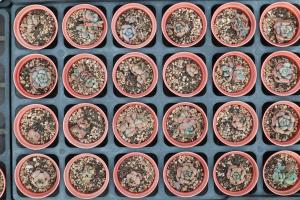Do Water Reclamation Plants Cause Odors?
Water reclamation plants have become increasingly popular in recent years as a way to recycle wastewater and reduce the strain on our natural water resources. However, one of the concerns that many people have about these plants is whether they cause unpleasant odors. In this article, we will explore this question and look at what causes odors in water reclamation plants, as well as what can be done to mitigate them.
What Causes Odors in Water Reclamation Plants?
There are several factors that can contribute to odors in water reclamation plants. One of the most common is the presence of organic matter in the wastewater. When the organic matter breaks down, it can release gases such as hydrogen sulfide, which have a foul odor. Another common cause of odors is the presence of certain chemicals, such as ammonia and volatile organic compounds (VOCs).
In addition to the wastewater itself, there are several other factors that can contribute to odors in water reclamation plants. For example, the mixing and aeration of the wastewater can create splashing and agitation, which can release odors into the air. Furthermore, the tanks and other equipment in the plant can also harbor bacteria and other microorganisms that produce odors.
What Can Be Done to Mitigate Odors in Water Reclamation Plants?
Fortunately, there are several strategies that can be used to reduce the odors produced by water reclamation plants. One of the most effective is to use advanced treatment technologies that can remove or destroy the odor-causing compounds. For example, ozone and hydrogen peroxide can be used to break down organic compounds and eliminate odors. Additionally, activated carbon can be used to adsorb VOCs and other odor-causing chemicals.
Another strategy for reducing odors is to improve the ventilation in the plant. By increasing the airflow and ensuring that the plant is well-ventilated, odors can be more effectively dispersed outside. Additionally, plants can be designed with odor control in mind, using features such as odor-eating biofilters and enclosed tanks that minimize air exposure.
Finally, proper maintenance and cleaning of the plant can also help to reduce odors. Regular cleaning and disinfection of tanks and equipment can prevent the buildup of bacteria and other organisms that produce odors. Additionally, monitoring and controlling the pH and other chemical parameters of the wastewater can help to minimize the production of odorous compounds.
Conclusion
Overall, water reclamation plants do have the potential to produce odors, but there are many strategies that can be used to minimize or eliminate these odors. By using advanced treatment technologies, improving ventilation, and maintaining the plant properly, it is possible to ensure that water reclamation plants are not a source of unpleasant smells in the community.

 how many times do yo...
how many times do yo... how many planted tre...
how many planted tre... how many pine trees ...
how many pine trees ... how many pecan trees...
how many pecan trees... how many plants comp...
how many plants comp... how many plants can ...
how many plants can ... how many plants and ...
how many plants and ... how many pepper plan...
how many pepper plan...




























